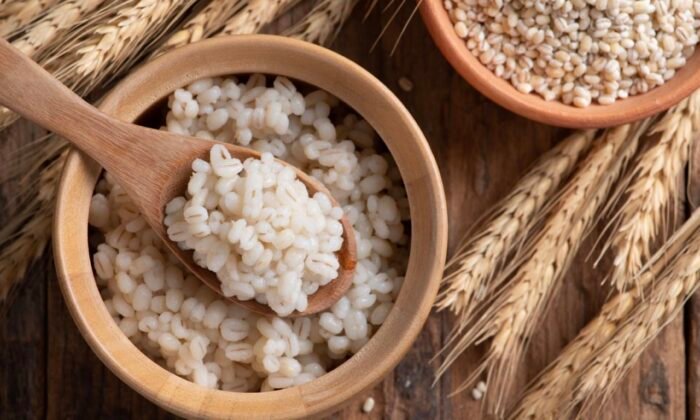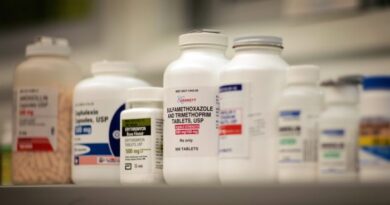Potential for Beta Glucans to Combat Cancer Shows Promise
The prevalent soluble fiber in beta glucans has multiple health benefits and shows promise as an adjuvant in cancer treatment.
What are Beta Glucans?
Beta glucans are a type of soluble fiber found in the cell walls of cereal grains such as oats and barley, different types of fungi such as shiitake and maitake mushrooms, as well as some yeasts, bacteria, seaweed, and algae. Their biological effects depend on their source, size, and structure, but they have been shown to be helpful in a number of conditions and support healthy blood glucose levels, aid in weight loss, improve the cardiovascular system, and benefit people with cancer.
As they are present in many foods, most people are likely getting some beta glucans from their diet, but they are also available in supplement form as pills, powders, and liquid for those who want more than their diet can provide.
Powerful Antioxidants
Studies demonstrate that beta glucans are powerful antioxidants and free radical scavengers that can help to repair DNA damage.
The authors found that the group that received cyclophosphamide had “considerably more severe cardiac damage than the control group,” but that the beta glucan had a protective effect when combined with the chemo drug. The authors concluded that beta glucan “could act as an effective cardioprotective molecule against the toxic effects caused by CP [cyclophosphamide].”
Immune Modulator
Part of beta glucan’s power is its ability to modulate the immune system—which means it can change the way the immune system functions. This is something it does in a variety of ways and depends on the source of the beta glucans and their structure. For example, research shows that beta glucans from yeast, which have been extensively studied, increase the body’s ability to make innate immune cells called cytokines (vital for an effective immune response), increase the speed and precision innate immune cells need to get to a pathogen, and increase the effectiveness of phagocytosis–cells that ingest and eliminate foreign invaders. They have even been shown to reverse lab-induced immune suppression.
AJ Lanigan has over two decades of expertise in immunology, pharmacology, and natural medicine. He is well known and respected for his work in advancing beta glucan science and education. He candidly describes the effect of beta glucans on the immune system, telling The Epoch Times, “What it [beta glucan] does is it causes the immune cells to do what they’re supposed to do—better and faster.”
He breaks it down, explaining, “Let’s look at four simple things that your immune system is charged with doing. Number one, surveil. Number two, identify. Number three, attack. And number four, eliminate the things that don’t belong there—including cancer cells.”
- Injected under the skin (subcutaneously) in cancer patients to reduce the size of skin tumors that are a result of cancer that has spread.
- For treating cancer and boosting the immune system of people with HIV/AIDS and other related conditions either intravenously or by injecting it into the muscle.
- Given intravenously after surgery to prevent infection.
Beta Glucans and Cancer
Beta glucans have been of particular interest as an adjuvant therapy in cancer treatment for their immunomodulatory effect, ability to specifically target cancer cells, and anti-tumor properties. A 2020 study published in the Journal of Fungi notes that “beta glucans do not have a direct cytotoxic effect on cancerous cells or tumours, but instead, elicit an indirect effect through the activation of immune cells.” In vitro studies also show that beta glucans trigger immune cells, including natural killer cells, macrophages, monocytes, neutrophils, and dendritic cells.
Mr. Lanigan concurs, saying that beta glucans don’t affect cancer directly, but help the immune system do its job more efficiently, “It [beta glucan] allows your immune system to do the best it possibly can do to surveil, identify, attack, and eliminate cancer cells.”
Researchers tested their survival rates, following up for three years, and found that the patient’s survival rates improved significantly and increased the longer they consumed it. The authors concluded that “lentinan-containing supplementary food is effective for hepatocellular carcinoma patients’ survival” and that “long-time ingestion is preferable,” based on their findings.
Sources, Dosage, and Contraindications
Oats and barley are some of the highest food sources of beta glucans, but they are also present in wheat, rye, sorghum, and rice; yeasts, like baker’s yeast; mushrooms like reishi, shiitake, and maitake; and seaweeds and algae. Because of their prevalence, many of us are getting at least some beta glucans in our diet, but if you want to increase your levels, you can always take them in supplement form.
The dosage of beta-glucans depends on various factors, such as age, weight, general health status, and medications, if any. Between 100–500 mg daily is generally recommended to enhance immune function, but some sources suggest that higher doses may be necessary to receive beneficial effects. If you have cancer and are interested in including beta glucan supplements in your treatment regimen, be sure to speak with your oncologist before you begin to ensure you are doing it safely and can be monitored.
Beta glucans are generally considered safe and well-tolerated—however, reactions are possible as with any supplement. The most common
Source link





